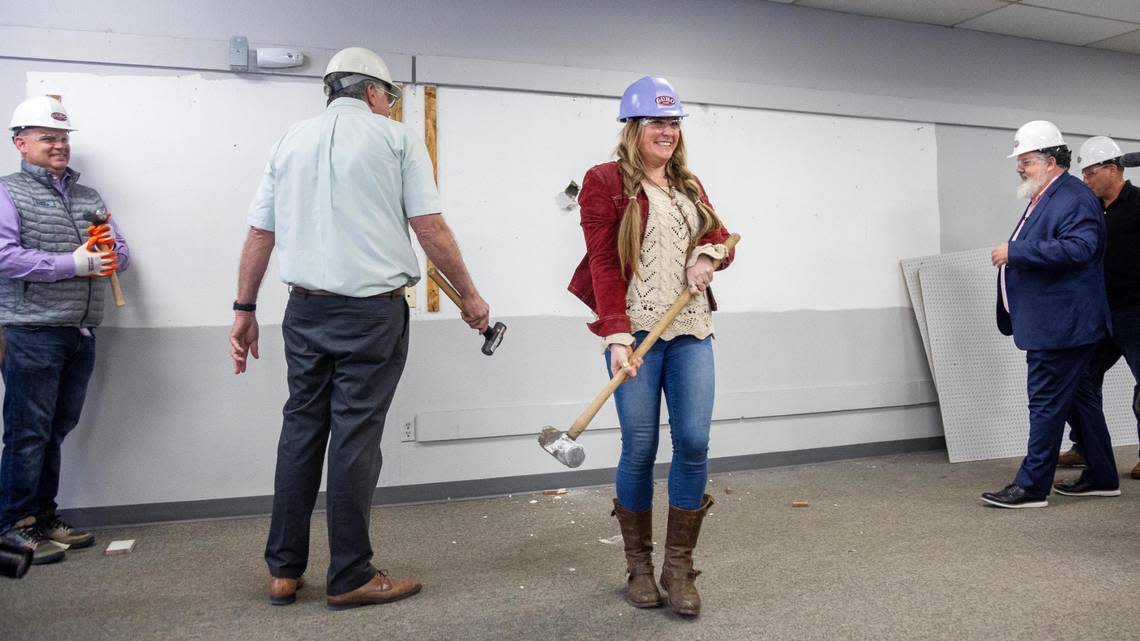Homelessness a main topic in Boise mayoral debates. This proposal would be disastrous | Opinion

As the executive director of Interfaith Sanctuary, I have been monitoring Boise’s election debates and news coverage. I have hosted face-to-face meet ups with several of the candidates running for city office to discuss the topic of homelessness. What has become abundantly clear is that the outcome of the city’s mayoral race will directly impact the future treatment of Boise’s unhoused community members.
During last week’s Associated Students of Boise State University debates, one of the mayoral candidates said that he would join the efforts to once again appeal the U.S. 9th Circuit Court of Appeals’ decision that prohibits Boise police officers from ticketing people sleeping outside when there is no shelter available to them.
As a reminder, the city of Boise under former Mayor Dave Bieter tried to appeal the case in 2019, and that appeal was denied by the U.S. Supreme Court. Various cities and counties under the jurisdiction of the 9th Circuit are now petitioning to appeal a related case that once again upheld that ticketing people for sleeping with no shelter available is unconstitutional.
Working within the shelter system we can see how destructive it would be to move in this direction. Ticketing individuals sleeping outside when there are no shelter alternatives creates a cycle that further prevents their reintegration into society. Instead of addressing the root causes of homelessness, this approach would perpetuate a system of punishment rather than providing shelter, support, or solutions to those who need them most.
This approach continues to displace our most vulnerable and turns a blind eye to the underlying causes of homelessness. When individuals are pushed away from urban areas, they are forced to seek refuge in less visible locations, making it difficult for outreach workers and social service agencies to provide assistance.
We also know this approach costs Boiseans more than it does to provide housing and support resources. A report published by the city of Boise in 2007 found that it costs the public between $45,000 to $80,000 per year to provide emergency services to each chronically homeless person in Boise, but only around $30,000 to provide housing and support services for that person. The report concluded that Boise needed to expand access to housing-first solutions, increase affordable housing stock on the market, and continue public-private partnerships to ensure taxpayers aren’t spending more money on paramedics, police and hospital services.
As a longtime service provider, I find it confusing that we would change course now in a time where we are seeing a record spike in evictions, and a skyrocketing number of families looking for assistance.
It is essential to remember that people experiencing homelessness are our friends, family, neighbors, and colleagues who have fallen on hard times. They are parents, siblings, grandparents, and children. They are not outsiders swarming our communities. They are not a monolithic group. Criminalizing homelessness effectively dehumanizes these people and fails to recognize that they, too, deserve dignity and respect. It is our moral obligation as a society to treat every member with compassion and empathy.
We need to focus on long-term solutions like providing affordable housing, mental health services, addiction treatment and job training initiatives accessible to everyone. We need to build low-income housing with built-in community support for our most vulnerable populations. However, we cannot stop working on the short term. Ironically, if the city and its residents want to avoid tent cities, they have to lift up the very things many avoid — the expansion of low-barrier shelters, committed funding streams for homeless service providers, and by-right zones so safe shelter can’t be politicized.
Instead of criminalizing homelessness, Boise needs to strive for a better, more compassionate approach that provides a path to recovery and self-sufficiency for all its residents, regardless of their circumstances. To do otherwise is to resign our city to a carceral approach that does nothing but make it more difficult to give people what they deserve: a home.
Jodi Peterson-Stigers is executive director of Interfaith Sanctuary Community Housing.

